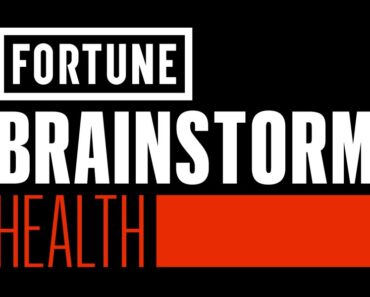This post was originally published on this site
Subscribe to Outbreak, a daily newsletter roundup of stories on the coronavirus pandemic and its impact on global business. It’s free to get it in your inbox.
Samin Nosrat made a career out of cooking for other people, and became famous teaching them how to do it themselves. Now she’s trying to carry on—and stay sane—in a more quarantine-friendly format.
“I definitely am beginning to lose my mind,” laughs the best-selling author and Netflix star of Salt, Fat, Acid, Heat. “I’m totally fine. I have great privilege; I’m completely aware of that. And I’m a human who’s losing my mind here.”
Before the coronavirus, Nosrat was already in a sort of self-imposed quarantine at her Oakland, Calif. home, recovering from a whirlwind year of Netflix-conferred celebrity. Now that everything else has shut down, she’s spending her days gardening and thinking about how the pandemic will influence her next book. She’s also recording and producing a new, limited, quarantine-appropriate Home Cooking podcast, with West Wing Weekly co-host Hrishikesh Hirway.
Like many creative professionals used to working flexibly and often remotely, Nosrat is noticing a difference now that those conditions are mandatory. “It’s not like I’m the best to begin with at separating work and not-work. But at least in my pre-coronavirus life, I either left my office at some point or there were clearly delineated times that I could not be working,” she says. “Now, when you’re doing all of this stuff on your own from home, there is no ‘off’ button.”
Nosrat spoke with Fortune for a new series, The Coronavirus Economy, to discuss how the pandemic has affected her podcasting plans, her finances, and how she’s overcoming isolation to continue sharing her love of cooking with others. The following Q&A has been condensed and lightly edited for clarity.

Fortune: What were you working on before this all happened?
Nosrat: I wasn’t really working, because I was so burnt out from the last two years. Starting at the end of last year, I took a break and tried to cut away everything that was not a commitment. I had been doing a lot of responding in the moment, and my most grounded self was not making the decisions. It was not bad. There were amazing opportunities coming my way! But I was making choices based on, “Ooh that sounds good,” or “Ooh, I like that person,” and that just led me to the brink of exhaustion. One person can only do so much.
In a weird way I feel out of sync with what others are going through, because I have been very actively restoring myself in the last few months. So when this crisis came about, I felt available to show up for people and be a source of joy and comfort. And that was why it felt totally right to do the podcast, which is something that Hrishi and I have been talking about for a long time.
Why are you only doing four episodes of the podcast?
It is an incredible amount of work. It takes a lot of time—we record hours and hours, and then edit that down into 40 minutes. Hrishi and our editor and mixer do so much of the work, and almost all the publicity has fallen to me. And we’re not making any money off of it, which is fine; we didn’t expect to and we are happy not to, but it’s not the most sustainable thing.
So how else are this pandemic and global shutdown affecting your finances?
I had many speaking events postponed, but a bunch of them just got rescheduled for the end of this year. Because I’m so tired, I was a little bit relieved to not have to travel; I think I’ll be ready and excited to do it when the opportunity comes back. So I’m in the really lucky position to not be affected.
But I also feel incredibly aware that not so very long ago, and for the bulk of my professional career, I relied on gathering with people and essentially the event industry to pay my rent and eat. And I’m not so far away from the many, many, many cooks and food workers who are affected by this.

Does this affect your work on your second book at all?
Well, I haven’t really been working on my book. But it’s all about cooking, and the constraints that determine what we should be cooking. And so I feel like the language of that will be a lot more familiar to people, whenever the book finally does come out!
What I was planning to do was reporting and in-person research, and now I’m getting to pay attention to how people are coping. In our normal lives, the most typical constraint in our cooking is time. We’re rushing around, we have jobs and children and we’re just trying to get something on the table. Right now, that’s turned upside down: a lot of people do have the time, and the constraints are mostly ingredients, or what tools you have at home, or what kind of space you have in your kitchen.
The particular set of constraints that we’re facing right now are very extreme, especially for some of our most vulnerable populations. But I also think it’s an amazing learning opportunity for people who want to become better cooks. Sometimes having anything be possible makes it harder, because you don’t even know where to start. The truth is, we’re always cooking with some constraints. We just don’t realize that often constraints are a gift.
Your work often highlights your joy in sharing food with other people. How are you dealing with not being able to cook for others?
Today it really hit me how much I miss restaurants. I definitely miss having people over, but what I really miss is that idea of the third place. For me, bookstores and restaurants are that third place; I can’t go to either of them now, and that’s a big loss.
But I live in one of four houses on the same piece of property. (East Coasters would probably think of it as a commune. It’s not a commune, it’s more like condos.) We all have a shared sense of community and we are in effect co-quarantining. We span ages zero to 74, and we’re all being very cautious and wearing masks. But we have a table in the courtyard where if I make a lasagna or something, I just put it out there and let everyone know. Or if people get a farm-box delivery, we share stuff. There is this way where I’m alone, but not that alone, which feels really good. It’s a saving grace.
More coronavirus coverage from Fortune:
—22 million lost their jobs in the past month—real unemployment rate likely near 18%
—How Fortune 500 companies are utilizing their resources and expertise during the pandemic
—Inside the surreal “Mask Economy”: Price-gouging, bidding wars, and armed guards
—The IRS just launched “Get My Payment” portal for tracking your stimulus check status
—How every sector of the S&P 500 has been impacted by the coronavirus selloff
—If you’ve been a little busy lately, here’s what’s going on with the 2020 election
—Military experts: We need to fight coronavirus like we fight insurgents on the battlefield
—PODCAST: COVID-19 might have upended the concept of the best companies of the year
—VIDEO: 401(k) withdrawal penalties waived for anyone hurt by COVID-19
Subscribe to Outbreak, a daily newsletter roundup of stories on the coronavirus pandemic and its impact on global business. It’s free to get it in your inbox.





